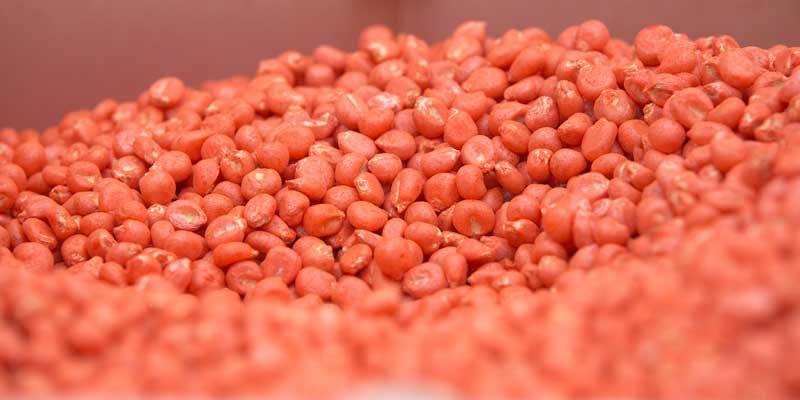AIC calls for clarity on timeline for changes to seed treatment rules

The Agricultural Industries Confederation (AIC) is calling on the Government to provide greater clarity for agri-supply businesses on the timeline for treated seed rule changes.
In collaboration with other industry stakeholders, AIC has been working with the Department for Environment, Food and Rural Affairs (Defra) to find a resolution to the upcoming seed treatment rule change which threatens to cause acute issues for imported maize seed in particular.
Post-EU Exit arrangements mean that after 31 December 2023, plant protection product (PPP)-treated seed can only be traded and used in Great Britain if it has been treated with a product authorised for that purpose in Great Britain.
AIC is working with stakeholders to find a solution to the end-of-year deadline for the import and distribution of maize seed treated with Korit, Redigo M or Force.
Seed treatments help to protect young maize plants from harmful pests and diseases as the crop establishes.
Without treated seed, the future of growing maize in the UK would be at risk and could result in more maize needing to be imported for livestock feed and energy production.
Were treated maize seed to become unavailable to UK farmers from 2024, a NIAB survey found that nearly 60% of growers would reduce their maize acreage, with almost 20% potentially opting not to grow the crop at all.
Importance of maize
In July, AIC met with Defra Minister Mark Spencer MP after writing to him to stress the importance of continued maize seed supply.
AIC worked with its Members and industry stakeholders to gather evidence and build a case to compel Defra to either delay the implementation cut-off date, provide an exemption for the cut-off dates for the three products in question, or grant an emergency authorisation for those products.
Robert Sheasby, AIC's Chief Executive, said: "Our Members need clarity from the Government on the timeline of the statutory legislation proposed.
"This matters because AIC Member businesses need to plan well ahead, making their timeline more protracted to that of their farming customers.
"While we are encouraged by the progress achieved by working closely with the Government and industry over the summer, we now need certainty to allow agri-supply businesses to prepare.
"Crucially, this will secure maize production in Great Britain."
Minister responds
During the summer AIC has worked closely with Defra representatives to explain how the ordering, purchasing and packing works through the supply chain of treated maize seed with Members.
Farming Minister Mark Spencer MP wrote to AIC following the trade association's request for greater clarity.
In the letter, the Minister told AIC: "Any changes to legislation need consultation and agreement across government departments.
"This process has now successfully concluded and so we are preparing to lay secondary legislation in autumn through the Retained EU Law (Revocation and Reform) Act 2023 (REUL). This is to ensure measures are in place by the end of the year before the current scheme for importing treated seeds ends.
"The aim of this legislation is to extend transitional arrangements for the import of treated seeds and to allow those holding valid parallel trade permits at the end of the transition period to apply for them to be reinstated on a temporary basis.
He added that while this was not a permanent solution, it would provide an immediate response to some of the pressures that maize growers and the agri-supply industry face.
AIC will continue to work with the Government and industry to find a workable solution and will keep its Members updated on developments.





